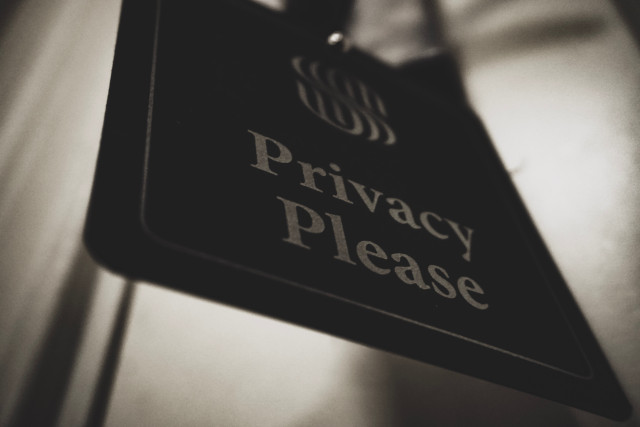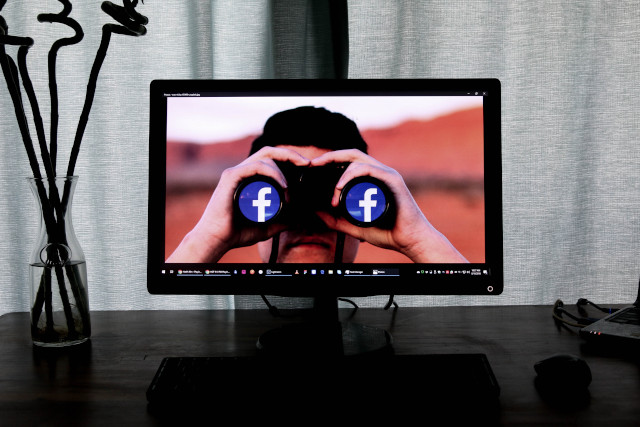
There is growing public pressure on Facebook to make some kind of change. Former employees and government officials want to break up the company calling it a monopoly, but are Facebook’s services essential?
Seeing this drama unfold, Google is quickly pivoting to privacy-based position. In recent weeks the company is allowing users to limit tracking and delete information Google has stored about usage. Very smart move… but is it enough?
Meanwhile Oracle just can’t give up on Project Jedi.
Acquisitions
- Apple buys companies at the same rate you buy groceries
This weekend, CEO Tim Cook told CNBC that Apple purchases a new company every two to three weeks on average, and has bought between 20 and 25 companies in the last six months alone.
That’s roughly as often as I bought groceries during some… oh, let’s just call them “fresh vegetable adjacent” periods of my life.
You know how human beings never fail to be surprised when they get to the cash register and see how much of their paycheck is about to turn into food? I wonder if Apple ever feels that way. I’d guess not, considering how the company’s reportedly sitting on $225.4 billion dollars of cash on hand alone — enough to settle a historic array of lawsuits with Qualcomm 50 times over, if push came to shove.
https://www.theverge.com/2019/5/6/18531570/apple-company-purchases-startups-tim-cook-buy-rate
- Marvell to Acquire Aquantia, Eying Automotive Networking Market
Marvell on Monday announced that it had reached an agreement to buy the networking specialist firm Aquantia for $452 million. The acquisition will allow Marvell to significantly augment their current networking capabilities, with the company intending to use Aquantia’s technology in future PC, enterprise, and especially in-vehicle applications.
Under the terms of the deal, Marvell will pay Aquantia shareholders $13.25 per share in cash, bringing the total value of the deal to $452 million. The transaction has already been approved by board of directors of both companies, and subject to regulatory approval, is expected to close by the end of calendar year 2019.
https://www.anandtech.com/show/14300/marvell-to-acquire-aquantia-eying-automotive-networking-market
Artificial Intelligence
- The Morning After: All the important stuff from Google I/O
An AI-powered assistant that responds to voice commands faster than you can type or swipe, even offline? That’s what Google promised at I/O, with demos showing off how its next-generation assistant could operate across and through several apps, using voice control almost exclusively to get the information users need when they need it. Plus, it learns what you like and can even make restaurant or menu suggestions based on those preferences. Expect to see these features roll out on Pixel phones first later this year.
https://www.engadget.com/2019/05/08/the-morning-after-google-io-highlights/
Cloud
- Oracle Alleges AWS Recruited DoD Officials To Influence JEDI Cloud Award
After Oracle first raised the issue, the DoD Inspector General, assisted by the FBI’s Public Corruption Squad, reopened a prior investigation and again concluded those potential improprieties didn’t impact the integrity of the process. A previous Government Accountability Office investigation also found no flaw warranting a change in how the military was selecting a cloud vendor.
But Oracle argued Tuesday the military’s contracting officer was wrong to take Ubhi’s claims at face value during the investigation, noting he actively sought to return to AWS, where he previously worked, during his short stint at DoD, where for a time he worked as a JEDI project manager.
- SAP embraces cloud customization – with interesting partners
SAP is launching SAP Embrace, a new initiative to enable users of the SAP S/4 HANA ERP system to move it to the cloud, with platform, software, services and infrastructure customized to their specific industry needs. Interestingly, SAP is collaborating with cloud competitors Microsoft Azure, Amazon Web Services (AWS), and Google Cloud. SAP Embrace customers will be able to select one of those three cloud services providers as a hyperscaler, and also leverage SAP’s network of global strategic service partners.
https://www.chainstoreage.com/technology/sap-embraces-cloud-customization-with-interesting-partners/
Security/Privacy
- Google Says It Has Found Religion on Privacy
Google plans to permit users to navigate its maps, watch videos on YouTube and search for information in “incognito mode,” limiting the amount of information shared with the company. It will also allow users to delete web and app activity history automatically after three months or 18 months.
Google added incognito mode to its Chrome browser a decade ago.
The company also said it would make it easier for users to find and delete information they have shared with the company, including location data in maps. For its Android operating system, Google said a new update would simplify how to limit the sharing of location data with app providers.
https://www.nytimes.com/2019/05/07/technology/google-privacy-tools.html
Software/SaaS
- Symantec CEO Abruptly Resigns Amid Financial Turmoil
Symantec CEO Greg Clark abruptly resigned yesterday immediately before the embattled security company reported its fourth-quarter 2019 earnings, which included weak enterprise sales and disappointing forecasts for the first quarter and full 2020 fiscal year.
The company appointed Richard Hill, current Symantec director and former chairman and CEO of Novellus Systems, as interim president and CEO, effective immediately, and said it will begin a search to find a permanent CEO.
- IBM sells $28.6b of bonds to help fund Red Hat buy
The Red Hat purchase will push the combined company’s borrowings above $US60 billion with debt that’s more than three times a key measure of earnings, said Bloomberg Intelligence analysts Robert Schiffman and Mike Campellone. Though IBM won’t buy back shares in the next two years, it still risks a potential downgrade to the BBB range, the tier of corporate debt that’s just above junk, they wrote.
IBM took out a $US20 billion bridge loan to fund the Red Hat deal and will use some of its cash pile, the company said in October when the transaction was announced. S&P Global Ratings and Fitch Ratings cut IBM one level to A at the time, the sixth-highest investment-grade rating, while it remains on review for downgrade at Moody’s Investors Service.
Infrastructure/Hardware
- Microsoft open-sources its quantum computing development tools
This move, the company says, is meant to make “quantum computing and algorithm development easier and more transparent for developers.” In addition, it will make it easier for academic institutions to use these tools, and developers, of course, will be able to contribute their own code and ideas.
Unsurprisingly, the code will live on Microsoft’s GitHub page. Previously, the team had already open-sourced a number of tools and examples, as well as a library of quantum chemistry samples, but this is the first time the team is open-sourcing core parts of the platform.
https://techcrunch.com/2019/05/06/microsoft-open-sources-its-quantum-computing-development-tools/
- Apple’s would-be sapphire glass supplier charged with fraud
Apple loaned $578 million to a company called GT Advanced Technologies, which was supposed to build highly scratch-resistant screen covers from synthetic sapphire crystals. Instead, it produced flawed “boules” of sapphire that couldn’t be cut into displays and went bankrupt months after it started. Now, the SEC has announced that it’s charging the company and its ex-CEO with fraud for allegedly withholding key information from stockholders.
https://www.engadget.com/2019/05/06/apple-sapphire-glass-supplier-charged-with-fraud/
Other
- Facebook co-founder, Chris Hughes, calls for Facebook to be broken up
The tl;dr of Hughes’ argument against Facebook/Zuckerberg being allowed to continue its/his reign of the internet knits together different strands of the techlash zeitgeist, linking Zuckerberg’s absolute influence over Facebook, and therefore over the unprecedented billions of people he can reach and behaviourally reprogram via content-sorting algorithms, to the crushing of innovation and startup competition; the crushing of consumer attention, choice and privacy, all hostage to relentless growth targets and an eyeball-demanding ad business model; the crushing control of speech that Zuckerberg — as Facebook’s absolute monarch — personally commands, with Hughes worrying it’s a power too potent for any one human to wield.
https://techcrunch.com/2019/05/09/facebook-co-founder-chris-hughes-calls-for-facebook-to-be-broken-up/

Facebook is not a monopoly, and breaking it up would defy logic and set a bad precedentHughes and others have cited historical precedents such as the government’s breakup of Standard Oil and AT&T as a justification for stricter antitrust regulation against tech giants. But these companies not only had clear monopolies with pricing power that hurt consumers, they also offered products that were vital to the economy.
Facebook, Instagram and WhatsApp are only three of many ways people can communicate digitally, and while many people spend hours every week using them, they are replaceable and inessential — and, in fact, getting away from Facebook and Instagram might make people happier. Even Hughes acknowledges, when he finds himself scrolling through Instagram at idle hours, “The choice is mine, but it doesn’t feel like a choice.”
https://www.cnbc.com/2019/05/09/facebook-should-not-be-broken-up-commentary.html
- Elon Musk is going to trial for calling a cave diver a pedophile on Twitter
Defamation law doesn’t apply to opinions or derogatory hyperbole, and Judge Wilson concluded that Musk’s case would be stronger if he’d simply tweeted an insult. But Musk “did not call [Unsworth] a ‘pedo guy’ and leave it there,” writes Wilson. “Rather, he made follow-up statements indicating that he believed his statements to be true.” That included the emails to BuzzFeed, where Musk “purported to convey actual facts and even suggested that the BuzzFeed reporter call people in Thailand to confirm his narrative.”
The decision doesn’t mean Musk is guilty, but it means Unsworth’s case is strong enough to deserve a trial. A pre-trial conference will take place on October 7th. This won’t be the first time Musk has gone to court for some bad tweets. He recently settled a separate lawsuit with the US Securities and Exchange Commission, which accused him of making misleading financial statements on Twitter.
Photo by Jason Dent on Unsplash








